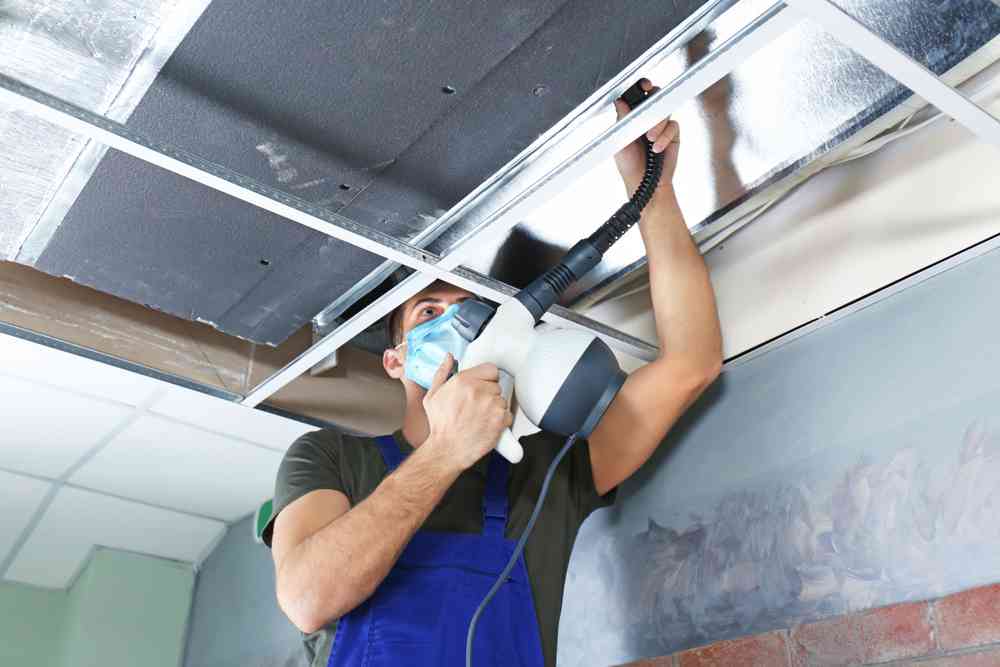Troubleshooting Tips for your Kitchen Exhaust System

Having a properly functioning kitchen exhaust system is essential for maintaining a clean and healthy environment in your kitchen. However, like any other appliance, your kitchen exhaust system may encounter issues from time to time. In this article, we will explore some common problems that can arise with kitchen exhaust systems and provide troubleshooting tips to help you resolve them.
Ontario-wide Kitchen Exhaust and Hood Cleaning – Best prices and service guaranteed.
1. Poor Ventilation
One of the most common issues with kitchen exhaust systems is poor ventilation. If you notice that your kitchen is still smoky or filled with cooking odors even when the exhaust fan is running, there may be a problem with the ventilation. Here are some troubleshooting tips:
- Check the exhaust fan: Ensure that the exhaust fan is running at its full capacity. If it is not, you may need to clean or replace the fan motor.
- Inspect the ductwork: Examine the ductwork for any blockages or leaks. Accumulated grease or debris can obstruct the airflow, reducing the effectiveness of the exhaust system. Clean or repair any damaged sections of the ductwork.
- Consider the hood design: The design of the hood can also impact the ventilation. Make sure that the hood is properly sized for your cooking equipment and that it is positioned correctly above the cooking surface.
2. Excessive Noise
If your kitchen exhaust system is making excessive noise, it can be both annoying and a sign of a potential problem. Here are some troubleshooting tips to address this issue:
Ontario-wide Kitchen Exhaust and Hood Cleaning – Best prices and service guaranteed.
- Clean the fan blades: Over time, grease and dirt can accumulate on the fan blades, causing them to become unbalanced and noisy. Regularly clean the fan blades to ensure smooth operation.
- Inspect the motor: A worn-out or faulty motor can also contribute to excessive noise. If you suspect a motor issue, consider contacting a professional technician to inspect and repair it.
- Check for loose parts: Vibrations from the exhaust system can cause screws and other components to become loose. Tighten any loose parts to reduce noise.
3. Inefficient Smoke Removal
If your kitchen exhaust system is not effectively removing smoke, it can lead to poor air quality and potential health hazards. Here are some troubleshooting tips to improve smoke removal:
- Check the filters: Clogged or dirty filters can significantly reduce the efficiency of your exhaust system. Clean or replace the filters regularly to ensure optimal performance.
- Consider the exhaust fan speed: Adjust the fan speed to a higher setting if you are experiencing difficulty in removing smoke. However, be mindful of the noise level and energy consumption.
- Inspect the ductwork: As mentioned earlier, inspect the ductwork for any blockages or leaks that may be hindering the smoke removal process. Clean or repair the ductwork as necessary.
Ontario-wide Kitchen Exhaust and Hood Cleaning – Best prices and service guaranteed.
4. Grease Buildup
Grease buildup is a common issue in kitchen exhaust systems, especially in commercial kitchens where cooking is done on a large scale. Here are some troubleshooting tips to address this problem:
- Clean the hood and filters: Regularly clean the hood and filters to remove grease buildup. Use appropriate cleaning agents and follow the manufacturer’s instructions.
- Inspect the ductwork: Grease can accumulate in the ductwork over time, leading to blockages and reduced airflow. Schedule regular professional cleaning of the ductwork to prevent excessive grease buildup.
- Consider a grease containment system: Installing a grease containment system can help trap grease before it enters the exhaust system, reducing the risk of buildup and potential fire hazards.
5. Unpleasant Odors
If your kitchen exhaust system is not effectively removing cooking odors, it can leave your kitchen smelling unpleasant. Here are some troubleshooting tips to address this issue:
- Check the filters: As mentioned earlier, clogged or dirty filters can hinder the odor-removal process. Clean or replace the filters regularly to ensure optimal performance.
- Inspect the ductwork: Odors can linger in the ductwork if it is not properly cleaned or maintained. Clean or repair the ductwork as necessary to eliminate odors.
- Consider using activated carbon filters: Activated carbon filters are effective in removing odors. Consider installing them in your kitchen exhaust system for enhanced odor removal.
Ontario-wide Kitchen Exhaust and Hood Cleaning – Best prices and service guaranteed.
A properly functioning kitchen exhaust system is crucial for maintaining a clean and healthy kitchen environment. By troubleshooting common issues such as poor ventilation, excessive noise, inefficient smoke removal, grease buildup, and unpleasant odors, you can ensure that your kitchen exhaust system operates at its best. Regular maintenance, cleaning, and professional inspections are key to preventing and resolving these problems. Remember to consult the manufacturer’s guidelines and seek professional assistance when needed. With these troubleshooting tips, you can enjoy a well-functioning kitchen exhaust system that effectively removes smoke, odors, and grease, creating a pleasant and safe cooking environment.
Learn more about “Necessary Maintenance for your Kitchen Exhaust System” here.
Frequently asked questions about Troubleshooting Tips for your Kitchen Exhaust System

Why is my kitchen exhaust fan making a loud noise? 📢
A loud exhaust fan can be caused by several reasons. Grease and debris buildup can create a blockage, causing the fan to work harder and emit more noise 🍳. Loose parts or screws in the system can also vibrate, producing unwanted sounds. Furthermore, worn-out or damaged fan belts may contribute to the racket. Always ensure regular cleaning and check for any parts that need tightening or replacement to maintain a quiet operation. 🔧
Why isn’t my exhaust fan drawing air properly? 🌬️
If your exhaust fan isn’t drawing air efficiently, there could be a few culprits. A clogged filter from grease and particulate buildup is a common cause 🕸️. The fan motor might also be malfunctioning or not running at its full capacity 💡. Damaged or improperly installed ductwork can also restrict airflow. It’s crucial to check the entire system, clean it regularly, and ensure all components are in good working condition for optimal performance. 🔍
How can I tell if my exhaust system is leaking? 💧
Detecting leaks in your exhaust system can be vital for safety and efficiency. If you notice grease or residues accumulating on the outer parts of the ducts, walls, or ceilings, it’s a potential sign of a leak 🚫. Unusual odors persisting even when the kitchen is not in use can also be an indicator. Regular inspections and ensuring proper sealing and maintenance can help avoid such issues. 🧐
My exhaust fan keeps turning off by itself. What should I do? 🤔
An exhaust fan that turns off unexpectedly can be quite concerning. This could be due to electrical issues, like faulty wiring or circuit problems ⚡. Overheating of the fan motor can also cause it to shut down as a protective mechanism 🌡️. Ensure that the system is clean to prevent overheating, and consult an electrician or specialist if you suspect electrical problems. Safety first! ⚠️
Why is there a bad odor coming from my kitchen exhaust system? 🤢
Bad odors emanating from your exhaust system can be quite off-putting. Typically, these odors arise from accumulated grease, food particles, and other residues that haven’t been cleaned out 🍔. These residues can become a breeding ground for mold and bacteria, producing unpleasant smells. Regular and thorough cleaning of the entire exhaust system, especially the filters, will ensure a fresh and odor-free kitchen environment. 🌸
- hood cleaning
- kitchen exhaust cleaning
- restaurant hood cleaning
- Troubleshooting Tips for your Kitchen Exhaust System






